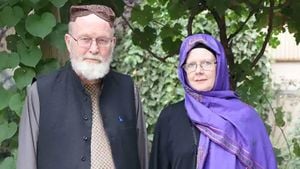Families living on the brink of poverty in Sicily are set to receive much-needed financial assistance through the newly launched Irfis aid program, which allocates €30 million to provide direct support to those most affected by economic hardships. With eligibility criteria focusing on families who have resided on the island for at least five years and possess an Isee of less than €5,000, the program aims to alleviate the financial struggles faced by low-income households.
The Sicilian regional government has opened the platform for applications, signaling hope for many families grappling with immediate challenges. This initiative promises to deliver one-time grants aimed at directly impacting those who most need help. The program is not just about financial relief; it symbolizes solidarity with families who often find themselves struggling to make ends meet.
According to reports from Il Tempo, "A one-time solidarity contribution as non-repayable aid for families in difficulty with Isee below 5,000 euros: it is the measure implemented by the Region..." This highlights the program’s character as non-repayable assistance, ensuring families can benefit without fear of future financial burden from repayment obligations.
For many, the opening of this platform could mean the difference between covering basic living expenses or falling even farther behind. The focus on persistent residents reflects the government’s acknowledgment of long-term challenges faced by local families amid rising costs and economic instability. The level of assistance on offer is expected to provide immediate relief, offering families the opportunity to invest the aid where it’s needed most, whether it be for food, healthcare, or education.
Facing increasing pressures from the economic environment, this program has emerged as a key pillar of support. It recognizes the growing need for intervention as households operate within the confines of tight budgets, often necessitating sacrifices simply to stay afloat.
The measure is expected to be well-received by communities across Sicily, which has confronted heightened poverty levels over recent years. The commitment from the regional government to aid impoverished families signals hope for improved quality of life, providing resources to those who have needed them the most.
With the Sicilian economy still recovering from various shocks, initiatives like the Irfis program are seen as necessary steps to rebuild and support the local populace. The aid program, by design, endeavors to lessen the economic strain, but it also serves as a broader affirmation of the government’s willingness to invest in its citizens’ well-being.
Overall, the Irfis initiative holds the potential to transform the everyday experiences of countless families, and its success will undoubtedly depend on engagement from those eligible. This program could provide not just short-term assistance, but also pave the way for long-term recovery and stability among Sicilian families.



